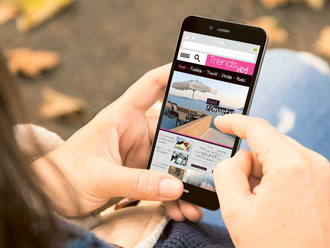Dubai: Governments throughout the Middle East and Africa realise that simply ignoring online social media is no longer a valid option and they are adopting a more progressive approach to building their online social media presence and adopting the necessary competencies to proactively engage with their citizens, industry experts said.
"From improving the access to information and services to engaging in dialogue with citizens, online social media hold great promise in their ability to increase the transparency of government institutions' interaction with the public," Mukesh Chulani, senior research analyst for the Middle East, Africa, and Turkey at IDC Government Insights, said.
"With social networking platforms being among the tools of change in the recent Middle East upheaval, now would be the ideal time for regional governments to tap Web 2.0 for two-way communications with citizens," Shukri Eid Atari, Director, Cisco Internet Business Solutions Group (IBSG), Emerging Markets, told Gulf News.
Growing usage
He said government departments in several regional countries increasingly engage with the public for feedback on e-government programmes or on specific e-services. They can now use Web 2.0 to interact on matters such as government services selection, scope, delivery and quality.
New Facebook accounts based in the Middle East and Africa (MEA) grew by nearly 60 per cent compared to the same period last year, versus an overall global growth average of 37 per cent. The MEA region remains the least penetrated geographic market for Facebook globally, with less than four per cent of the region's population (or approximately 46.8 million individuals) having subscribed to the platform.
Due to the popularity of social media, he said Middle East governments now have the opportunity — and responsibility — to remove barriers to citizen participation and in turn help raise the level of discourse in online public debates.
Online approaches
Chulani said there was a wide spectrum of opportunities for online social media to be utilised by governments, including initiatives for better informing, consulting, involving, and collaborating with citizens, and regional governments are now looking at approaches to adopt online social media into their institutions.
Already, Bahrain, Jordan, Lebanon, Morocco, Palestine, Saudi Arabia, Turkey, the UAE and Yemen are active on social media platforms like Facebook, Twitter, and YouTube.
In the UAE, many federal and local government units have deployed online social networking applications, like the Statistics Centre — Abu Dhabi Census Challenge 2011, which are proving to be highly beneficial to residents. The UAE's General Information Authority has been supportive of such efforts with a coherent set of policy guidelines to assist public-sector entities in their outreach to citizens via online social media. "To a large extent, this move is reflective of MEA citizens' own appreciation of the medium," Chulani said.











